 The life of a model: Not as glamorous as it seems
The life of a model: Not as glamorous as it seems
 Hello Kitty, happy 40th birthday!
Hello Kitty, happy 40th birthday!
 The Western Qing Mausoleum
The Western Qing Mausoleum
 Avant-garde approach to graduation photos
Avant-garde approach to graduation photos
 Early PLA posters, signatures of an era
Early PLA posters, signatures of an era
 First Russian Street in Tianjin open to public
First Russian Street in Tianjin open to public
 Motorcycle stunt on the Bund
Motorcycle stunt on the Bund
 French Spiderman Alain Robert climbs up Galaxy Hotel in Macao
French Spiderman Alain Robert climbs up Galaxy Hotel in Macao
 Africans in Guangzhou
Africans in Guangzhou
 Pole dancer shows strength and beauty up in the air
Pole dancer shows strength and beauty up in the air
U.S. President Barack Obama assured Japan during a visit to the country that Washington was committed to its defense, and went on to indicate that the U.S.-Japan security treaty would apply to the disputed Diaoyu Islands. This extension of the U.S.-Japan security treaty to the Diaoyu Islands was a new first; it was confirmed by summit-level documents issued by Japan and the U.S.
Later, on April 30, a senior U.S. official emphasized that Obama's commitment on the Diaoyu Islands should not be interpreted as a provocation to China. This is a standard U.S. approach, a political cliche, and nothing new. A similar position has previously been taken by other high-ranking U.S. officials, including the Secretary of State and the Secretary of Defense.
The reality is that these remarks are not only a provocation to China, but also a betrayal of America and China's own history.
The Diayou Islands have belonged to China for centuries. In 1894 Japan launched a war of aggression against China and stole the Islands. At the end of Nov, 1943, China, the U.S. and Britain held the Cairo Conference in Egypt; the Cairo Declaration was released on Dec. 1. It declared categorically that all Chinese territories stolen by Japan, including Northeast China, Taiwan, and the Penghu Islands must be returned to China. This was a heavy blow to the Japanese invaders and an important international recognition of China's resumption of sovereignty and territorial integrity. Three days after the Cairo Declaration, a special report marked in bold in the headline of "The New York Times" said that The Cairo Conference represented a revision of Japanese territory and sovereignty back to the situation that had applied before 1895.
China and the U.S. fought side by side in the world anti-fascist war, and made great sacrifices to defeat Japanese militarism. If, in order to maintain the U.S.-Japan alliance, the U.S. betrays this history and profanes the dignity and the memory of its own war victims, its action will be intolerable. While Obama was in Japan, a large group of Japanese politicians paid visits to the Yasukuni Shrine, testimony to Japan's denial of its history of aggression. The gesture was also an insult to Obama's support for Japan.
In order to apply its so-called "Strategic Rebalancing in Asia", the U.S. has fallen into the trap of trying to constrain China. It is trying to take advantage of the U.S.-Japan alliance to make Japan an accomplice to its rebalancing strategy, constrain China's peaceful rise, and force concessions on China's core interests. At the same time, Japan is taking advantage of American greed to cause trouble around the historical issue, setting aside the peace constitution on collective self-defense, provoking its neighbors over territorial disputes, and reinstating the principle of arms exports. Japan's conduct has caused concern to its neighbors, including China.
China's peaceful rise will not be constrained by any other country. The U.S. and Japan will taste bitter fruits if they continue their betrayal of history.
The author is deputy director of the Chinese People's Anti-Japanese War Memorial Hall
The article is edited and translated from美日私相授受釣魚島是背叛歷史
, source: Global Times, Author:Li Zongyuan
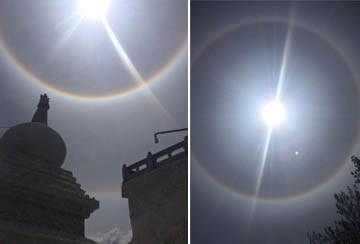 Solar halo occurs in Lhasa
Solar halo occurs in Lhasa High fashion trend welcomed by costumers in Changsha
High fashion trend welcomed by costumers in Changsha 17 years' teaching life in a remote village in Qinghai
17 years' teaching life in a remote village in Qinghai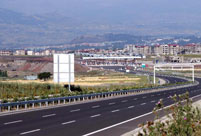 Beautiful Chinese-built roads in Africa
Beautiful Chinese-built roads in Africa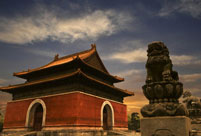 The Western Qing Mausoleum
The Western Qing Mausoleum Overseas returnees strive for dreams in Beijing
Overseas returnees strive for dreams in Beijing Fried up: Chili pork bonanza in Central China
Fried up: Chili pork bonanza in Central China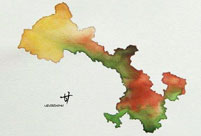 Hand-painted maps go viral online
Hand-painted maps go viral online 4th Beijing Int'l Film Festival ends
4th Beijing Int'l Film Festival ends 'African Street' in Guangzhou
'African Street' in Guangzhou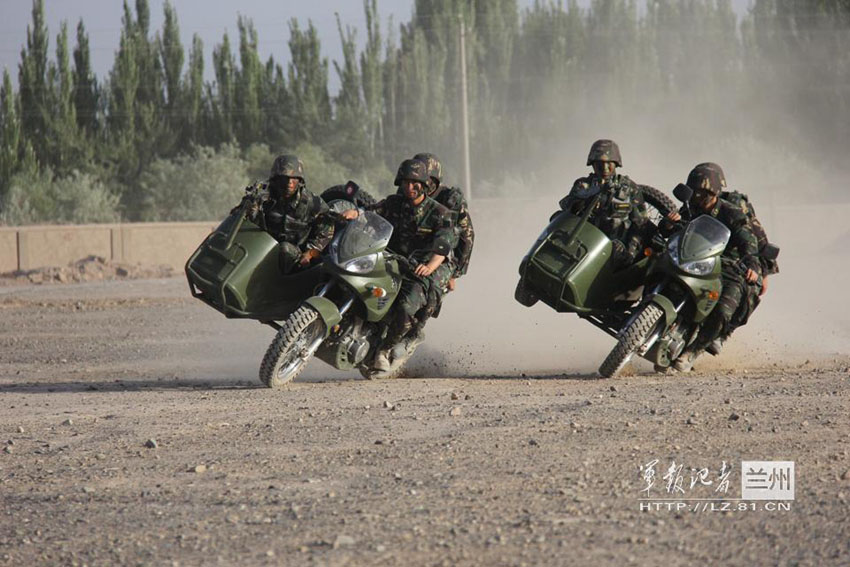 Special operation members in comprehensive training
Special operation members in comprehensive training Cute Shaolin boy melts the hearts of millions
Cute Shaolin boy melts the hearts of millions Giant panda Sijia is back to happy life
Giant panda Sijia is back to happy life Richest Chinese of 2014: half from the mainland
Richest Chinese of 2014: half from the mainland Chengdu - laid-back lifestyle makes happiest city
Chengdu - laid-back lifestyle makes happiest cityDay|Week|Month